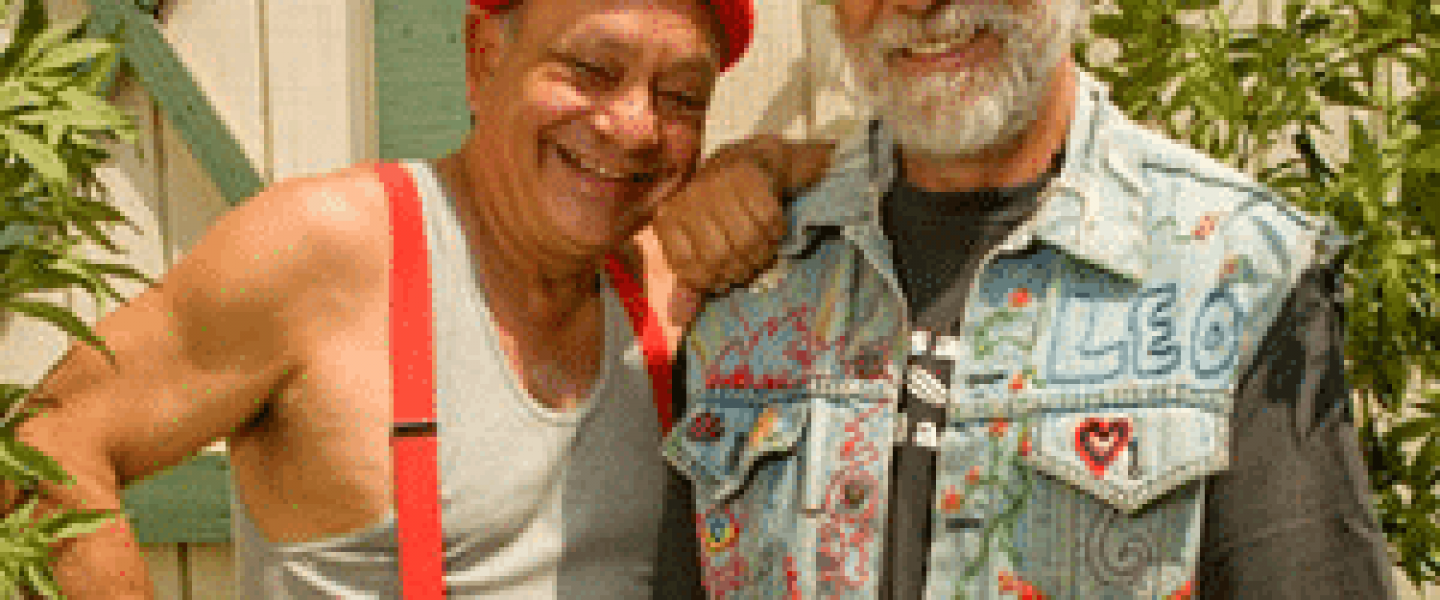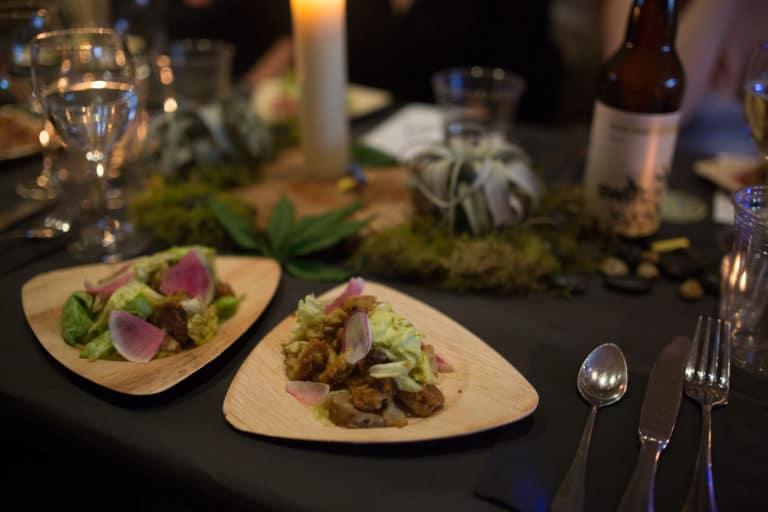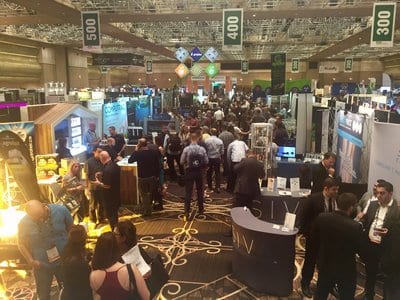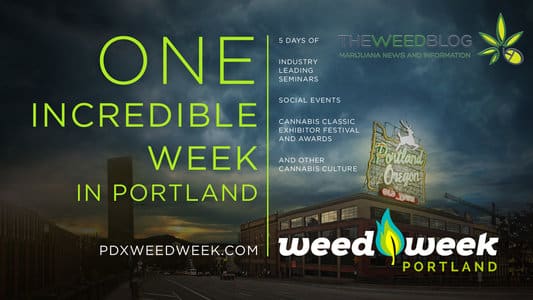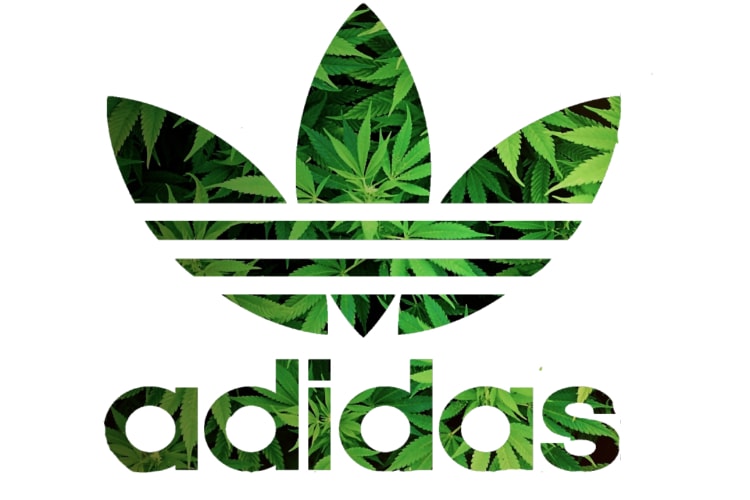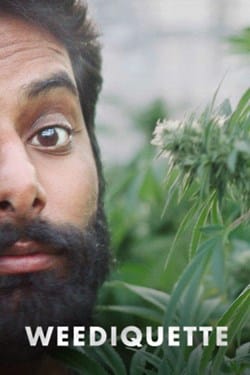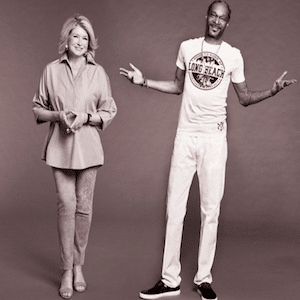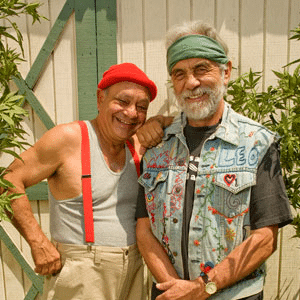 Cannabis And Comedy Legends Cheech And Chong Are Back–Better Than Ever!
Cannabis And Comedy Legends Cheech And Chong Are Back–Better Than Ever!
Separately, they are two incredibly talented young entertainers who couldn’t quite pin down that elusive formula for success. Together, they are a creative dynamo that not only generated huge international fame, but forever changed how we talk about a host of important social issues, including marijuana politics and policy, race relations and the eternal tension between government and personal liberties.
While Tommy Chong and Richard “Cheech” Marin both came from decidedly middle-class backgrounds, they were and remain two very different men. When they met in Vancouver in 1967, Chong was a professional musician recently fired from an up-and-coming blues band for missing a gig, while Marin was a struggling improvisational comedian and college dropout who once auditioned for Frank Zappa’s band. Chong, a Canadian, was the son of a Scot-Irish waitress and a Chinese truck driver. Marin, a Chicano native of East Los Angeles had come to Canada to dodge the Vietnam draft, was the child of a secretary and an LAPD cop.
But as the comedy duo of Cheech and Chong, their individual natures melded into something the entertainment world had never before seen. Other comedians talked about marijuana–Lenny Bruce and Richard Pryor mined their drug experiences to great success. But Chong and Marin made love of the leaf central to their act, adopting stoner personas so hilariously convincing that the cannabis community embraced them as icons of the legalization movement.
In doing so, they almost single-handedly shifted public perception of marijuana users away from theReefer Madness image of wild-eyed drug fiends to fun-loving people who themselves were under assault from wild-eyed drug warriors.
The pair broke out of the underground club scene in 1971, with the release of their now-legendary first comedy album, Cheech & Chong. Big Bambu followed a year later, earning the duo mainstream respect after it was nominated for a Grammy and sending fans into frenzies of adoration when word spread that the album contained a giant rolling paper.
It was just a whiff of things to come. In 1978, Paramount Pictures released Up in Smoke–a fairly low-budget film consisting largely of reworked Cheech and Chong routines. It proved a major hit, raking in more than $44.3 million and cementing Chong and Marin’s reputations as comedic geniuses. The film spawned two sequels and is often cited by critics as launching the “stoner film” subgenre.
Unfortunately, the same personality differences that gave the duo’s performances such dynamism split them apart. Following months of bitter arguments over where to take their act next (a dispute worsened by the financial and critical failure of the film Cheech & Chong’s The Corsican Brothers), the pair called it quits in 1985.
Chong chose to maintain his pot-smoking hippy image by starring in stoner classics like Half Bakedbefore taking on the recurring role of Leo in television’s That ’70s Show. He also remained an outspoken critic of American drug policy, a stance that earned him both great respect in pot-legalization circles, but also the fierce enmity of the federal government. In 2008, he pleaded guilty to federal charges–regarded in many legal circles as a travesty of justice–of selling pot paraphernalia across state lines and spent nine months in prison.
Marin took a different route, distancing himself from the pot scene through film roles like Disney’s The Lion King and Tin Cup and serious TV roles on shows like Nash Bridges. While a supporter of marijuana legalization, Marin was never an active advocate for it–he’s largely remained on the sidelines of the legalization debate.
The pair reunited in 2008, traveling the world to introduce a new generation of fans to their stage antics. They also completed an as-yet untitled animated film featuring many of their older routines, combined with new songs and material. The film is currently in post-production.
CULTURE recently spoke to Cheech and Chong just prior to the duo’s show in San Bernardino as part of the current Get It Legal Tour.
A Q&A with Tommy Chong
So how does it feel to be performing with Cheech again?
It’s been great. We’ve been out performing together again for almost 2-and-a-half years, performing all over the place. We’ve been to Australia, all over America. It’s great, but it’s weird. I look in the mirror at the two of us and we look like the sixth-place winner of a Cheech and Chong lookalike contest, the runner-up in the “Nice Try” category. Then we have people come to our shows with pictures of them dressed up like Cheech and Chong, and they look more like Cheech and Chong than we do. It’s fun being back with my old partner.
Is the magic still there?
Oh, yeah. The magic has sort evolved into a more mature thing. We’re not in such a hurry to get on and off stage. We tend to enjoy our moments up there more. You substitute knowledge for energy. I mean, years ago, we were so active–we were wrestling onstage, crawling around on our hands and knees. We were very physical. That’s slowed down a bit, but we get more into the head, into the thinking process. It evens out. What you lose in energy, you gain in timing.
What’s changed, for better or worse, in the performing industry since you first toured together?
Everything is more compartmentalized now. You have radio stations where you can just listen to heavy metal, radio stations where you just listen to classical music, stations that are just rap. Back when we started out, you were it. It was a comedy show that everybody came to, made up all types of people. But when we were considered hard-rock comedy, we played mostly to a heavy metal crowd. The other people who weren’t into that knew better than to come. We had no problems. The only problem we had was we were known–and still are known–as ‘the pot comics.’ Our shows were about pot, and the venues that disagreed with that didn’t want us. But we had our own, built-in audience.
Tell us about your upcoming animated film project.
It’s still being done–well, we did it, actually. Then the producers looked at it and decided we need more current songs in it. So we went back and put in about five or six new songs. That way it’s more up-to-date, more current. What it is, we animated our old record bits, which were 30 years old so we updated everything. It looks like it will be released in a few months from now–they’re looking for a big release. They want to sell it to a movie studio. It’s still called the “Cheech and Chong Animated Project”–it doesn’t’ have a real name for it yet.
A lot has changed in the medical marijuana world since we interviewed you back in 2009–the feds have launched their big crackdown on dispensaries. What do you think about this latest government assault?
[Laughs] It’s a joke. They’re trying to put out a wildfire with squirt bottles. All they do is keep driving it back underground, so the people who sell it don’t have to pay rent. It’s silly on the government’s part. It’s all political, all election-year politics. The Obama people don’t want to look like they’re soft on weed. On the other hand, we’ve got enough medical marijuana laws on the books that allow us to have it. The question is how do we get it? . . . In the long run, it really shows you how badly the War on Drugs has gone for the government. It’s like all the wars they go into: They’re in it for 10 years and then start looking for an exit strategy so they don’t look stupid.
Have you decided who you’ll support for president in November?
I’m, of course, for Obama. He’s gonna get in. But I love what the Republicans are doing. I thought suicide was illegal, but apparently it isn’t. But first, they’ll torture each other. The truth is, all the smart money is on Obama. But all those other people, like Gingrich–they have to sell books and the fame doesn’t hurt them.
Since last we spoke, your native Canada has gone hard right in its government. What do you think about the Stephen Harper administration and its attacks on medical cannabis?
Oh god, Harper. They took over from Bush. Bush almost went over the cliff with the economy, so Harper took Bush’s baton and he’s running with it. They’re oil men–owned and operated by the oil companies, obviously. Harper will do the same thing to Canada that Bush did to America. The only good thing is we have a parliamentary system, so we can fire him when it gets too ridiculous, as happened with Tony Blair. Canada has always been five years behind the States. We’ve got a [Pierre] Trudeau in the wings, waiting to come out and take over. [Laughs] Harper is doing his war on drugs–everybody else has figured that one out, but he hasn’t. He’s just a lackey for the oil companies.
The documentary a/k/a/ Tommy Chong did an outstanding job examining the federal raid on your home and your subsequent prison sentence. But a lot of people wonder what it must have been like for you, an entertainer and activist, doing time in a federal prison. What got you through that experience? How did the other prisoners react to your presence?
I really indoctrinated into the power of the spiritual world. I turned into a spiritual retreat. I joined the Native American sweat lodge they had there. And I actually ministered to a lot of inmates in there. I helped a few just by teaching them what I knew about what books to read and who to follow. I practiced the art of meditation, got into the I Ching, [Joel] Goldsmith, Emmet Fox. It was like I spent nine months in a spiritual retreat, much like what monks do in Tibet. And I came out of it. It was one of the nicest things that ever happened to me, to tell you the honest truth.
You recently told Access Hollywood that Whitney Houston would still be alive today had she just stuck to pot. Would you talk about that a little?
They say, and rightly so, that marijuana is a gateway drug. In other words, it’s harmless but could lead to other drugs that are dangerous, and that’s all true. If Whitney had just stayed at the gate, she’d still be singing. Tony Bennett was a pothead and he’s still singing. If you talk about his pot use, he’ll be very open about it and say he smokes at least once a week, maybe more. The thing about pot is it’s a beneficial herb that helps the body–it doesn’t hurt the body. That’s why they say gateway, because it lowers your inhibitions. And when people try it, they think, “If they’re lying about pot, they must be lying about cocaine” or “If they’re lying about pot, they must be lying about methamphetamine.” Alcoholics will do cocaine to give them more energy to drink more. What killed Whitney was prescription drugs, which, mixed–with alcohol–can be deadly. Whereas with pot, there hasn’t been one recorded instance of pot alone leading to someone’s death. It’s a medicine. It’s an intoxicant that’s safe. There are a lot of fans of mine who don’t smoke pot because it doesn’t agree with them. The great thing is it’s not addictive–you can quit any time and there’s no ill effects . . . If Whitney hadn’t moved beyond pot, she would have lived to be a beautiful old diva.
It strikes me as revealing that, while so many celebrities with supposedly squeaky clean images have run into trouble with drugs and alcohol, you and Cheech seem the picture of good health. What do you think this says about both the public’s perception of you and the health benefits of cannabis?
It’s the same thing. The reason pot is illegal because it’s so good and hemp products are so good, it’s environmentally friendly. So you have the plastics industry that lobbied against it. Then you’ve got the pharmaceutical companies lobbying against making pot legal. You’re buying sleeping aids and being killed like Whitney Houston on pharmaceuticals that are dangerous. Here’s an herb that helps with arthritis, that helps with cancer, that slows MS. It really is a God-given plant that we’ve been abusing, not with use but by passing laws against it.
You’ve been a band musician, standup and sketch comedian, television and film actor, businessman and activist. At the end of the day, Tommy, what would you wish to be best known for?
Probably as the father of some beautiful kids: Rae Dawn, an actress; Robbi, a model; Precious and Paris, actors; Gilbran, who’s still in school going for a music degree. I think my cred as a father and as an example of a healthy pothead–that’s what I want to be known as.
A Q&A with Richard “Cheech” Marin
Let me start by asking you the same question I asked Tommy: Now that you’re touring together again, is the magic still there?
Yeah. It’s older magic, but it’s good–it’s a lot of fun, like doing live takes. It’s just great–it’s new every day.
I’m told your current act with Tommy is more cerebral than in previous years, when you were known for being incredibly physical comedians onstage. Do you find your new stage show to be more challenging than in the past?
Well, it’s a combination of both–there’s a lot of physicality. And there’s a lot more music in it this time. We’re doing a couple more catalogues that we weren’t doing before. There’s also a section in front where we come out into the audience and answer questions. It’s an introduction to the audience that works out very well.
What’s changed in the performing industry since you first toured together?
For starters, the performing industry is used to doing shows now. In the early days, they’d come up to us and say, “Will you guys be needing microphones?” And we’d say, “Well, yeah, there’s 5,000 people here–we’ll probably need microphones. Now there are facilities that are used to having large shows, and the productions have gotten much more sophisticated. The biggest change, as far as we’re concerned, has been the arrival of the casinos–that’s saved the touring industry.
With your ongoing tour and upcoming animated film, a new generation of Americans is being exposed to your material for the first time. What’s the single message you hope to communicate to this younger batch of fans?
It’s funny, because the younger guys want to see the classic stuff. We were a stage act before anything else. Because a majority of the audience didn’t know us from our stage act and only knew us from our movies, the question when we started touring again was “What are you guys going to do onstage?” But then we start doing our act and they get used to the characters right away and like it. Some of them know the material, some don’t, and some will get really interested and they like it.
Watching you crush Anderson Cooper to win Celebrity Jeopardy was the highlight of my month. How did that win feel? And what did you think about Cooper blaming his loss to you on the so-called “Zen of the buzzer?”
I resisted the urge to really rub in it. It’s a very specific skill, Jeopardy. The questions are called quickly. I assume everyone knows the answer, so it’s just a matter of who gets in there quickly. Of course, you also have to be incredibly smart. Anderson was right about the buzzer. I was the first Jeopardy Celebrity Champion–I won the very first time they did it. When I won the [Jeopardy Million Dollar Celebrity Invitational Tournament], one of the writers asked me if I [was] a musician. Because it’s all about timing. When they finish asking a question, the lights come on on the board and you have to buzz in–but if you buzz in too early, then you’re locked out. So you have to know the answer halfway through the question being asked.
Much has been made about the bitterness of your split with Tommy back in the mid-’80s. Would you talk a little bit about how it felt to you personally to reunite?
It was fun. Some of the same problems surfaced, but we’re older and we kind of have different perspectives now. We have to accommodate each other, something we didn’t know how to do before, but this time we went ahead and did it. We’re happy to be on stage together. We realized that in and of itself, being on stage together is kind of like riding a bicycle. You get onstage and it’s automatic. We get onstage and we can’t deny it. It’s great, and what we have to do now is not get in the way of it.
Along with acting and performing, you’re an avid collector of Chicano art and a dedicated golfer. Would you tell our readers something else about yourself that might surprise them?
I’m an avid reader–it’s like a dying art. I’m also a chef: I was just on Rachel Ray and Guy Fieri’s show doing the first celebrity competition they had. I cook every day and used to cook in hotels. I’m going to start a restaurant soon.
I read recently that you’re working on a book of essays on the Chicano experience.
I’m working on a book about this whole Latino thing that’s going on throughout the country–a big, giant cultural, political, social energizing of the demographic. The thing that’s different from previous cultural movements is that this is in every state–it’s going to change a lot of things, just through demographics. The book is called, We Come in Peace, and We Have You Surrounded. Just a funny way of looking at something that already exists.
Your father was an LAPD officer. That must have made for some uncomfortable moments when you became one of the great heroes of the marijuana scene.
Yeah, he was an LAPD cop for 30 years. He loved what I was doing–it was his entre into the juvenile demographic. He worked with juveniles. He’d say, “Have you heard of Cheech from Cheech & Chong? That’s my son.” And he’d have them. He also liked that he got a lot of free Cheech and Chong stuff.
While Tommy has always been an outspoken advocate for cannabis legalization, you’ve been more reserved in speaking out on the issue. Why is that?
It’s a fait accompli. Marijuana is quasi-legal–it’s like being quasi-pregnant. This is something that’s Tommy’s image–that’s fine. I’m all for legalization, but it’s legal already. I’ve shifted my focus–I’m going to focus on getting medical beer.
Have you decided who you’ll be voting for come November?
Obama–that’s easy. I just feel sorry for the Republicans. They’re running down their brand every day. You gotta pick from those guys? Give me a break. No matter who emerges, they’re like straw dogs.
The Nicest Dreams
For you trivia buffs, here are three things you probably didn’t know about Cheech & Chong. Then again, maybe you did know . . . but forgot.
Not Fakin‘ Da Funk
Cheech & Chong’s famous “Waiting for Dave” sketch was ad-libbed by Chong, which made Chong’s resulting anger and confusion that much more convincing.
Size Does Matter
Cheech & Chong’s second LP, 1972’s Big Bambu, contained (besides the vinyl record), a giant-size rolling paper . . . which probably means that if the album was released and sold today, Walmart wouldn’t carry it.
I Know You Are, But What Am I?
The comedy duo introduced the world to Paul Reuben, a.k.a. Pee-wee Herman, courtesy of 1980’sCheech & Chong’s Next Movie. Reuben would also appear in Cheech & Chong’s Nice Dreams. Can you say, “meka leka hi, meka hiney ho?”
Published with special permission from Culture Magazine


